#mr. higgins
Explore tagged Tumblr posts
Text
He and they had led parallel lives—very close, but never touching—till the accident (or so it seemed) of his acquaintance with Higgins. Once brought face to face, man to man, with an individual of the masses around him, and (take notice) out of the character of master and workman, in the first instance, they had each begun to recognise that “we have all of us one human heart.” It was the fine point of the wedge; and until now, when the apprehension of losing his connection with two or three of the workmen whom he had so lately begun to know as men,—of having a plan or two, which were experiments lying very close to his heart, roughly nipped off without trial,—gave a new poignancy to the subtle fear that came over him from time to time; until now, he had never recognised how much and how deep was the interest he had grown of late to feel in his position of manufacturer, simply because it led him into such close contact, and gave him the opportunity of so much power, among a race of people strange, shrewd, ignorant; but, above all, full of character and strong human feeling.
I love the way getting to know Higgins has changed Thornton. Actually, it goes both ways. And I think it's really interesting how we are told in an aside that we must (take notice) that they have to do so out of their established roles at first. That took Margaret to have a connection with each of them and encourage them to give the other a fair chance. And even then, it was far from immediate, but they both went out of their comfort zone. They both literally did so, even, with Higgins going to visit Thorton and then the reverse.
I also really like the way that, while Margaret's intervention was crucial in getting them to make that initial effort, she didn't make either of them do anything. She urged Higgins to ask for work, and she spoke up on behalf of the workers to Thornton, but she didn't directly get involved beyond that. When Thornton meets her at Higgins', he was already on his way to rescind his refusal, and actually resents the implication that her scolding is what's making him change his mind:
He came to tell Higgins he would give him work; and he was more annoyed to find Margaret there than by hearing her last words; for then he understood that she was the woman who had urged Higgins to come to him; and he dreaded the admission of any thought of her, as a motive to what he was doing solely because it was right.
Neither of them are changing solely for her sake. Higgins gives Thorton a chance thanks to her convincing him it's worth a shot, but primarily for the sake of the children he's taken in. Thornton gives Higgins the job in the end primarily because he is convinced by Higgins himself, his actions and words. And maybe without loving Margaret first he would be less inclined to notice those, but it's still not done just to please her.
And once they do begin to see each other as actual people and not representatives of concepts, they get along! They build their own respect and sort of friendship in her absence - something that takes active work, since they are accustomed to resentment of the "other side" of this issue. We already head of Higgins offering suggestions and Thornton listening and acting on them to make his workplace better. And this chapter we see the ultimate upshot of this respect for one another, with both men deviating from what they would have done in the past.
“Th’ measter’s a deal to potter him,” said Higgins, one day, as he heard Mr. Thornton’s short, sharp inquiry, why such a command had not been obeyed; and caught the sound of the suppressed sigh which he heaved in going past the room where some of the men were working. Higgins and another man stopped over-hours that night, unknown to any one, to get the neglected piece of work done; and Mr. Thornton never knew but that the overlooker, to whom he had given the command in the first instance, had done it himself.
Higgins makes the choice to see past Thornton's brusque/harsh attitude and recognize the stress he is under. He sacrifices his own time and unpaid labor to try and help out.
There was nothing for it at last, but that which Mr. Thornton had dreaded for many weeks; he had to give up the business in which he had been so long engaged with so much honour and success; and look out for a subordinate situation. [...] So he waited, and stood on one side with profound humility, as the news swept through the Exchange of the enormous fortune which his brother-in-law had made by his daring speculation. It was a nine days’ wonder. Success brought with it its worldly consequence of extreme admiration. No one was considered so wise and far-seeing as Mr. Watson.
The beginning of this chapter tells us that Thornton initially valued the idea of far-flung respect and riches, that "That was the idea of merchant-life with which Mr. Thornton had started." But he's grown to value his own town, the people he works with here, as represented by Higgins. And when he has to choose between risking it all on a chance to earn big, or stepping down and willingly choosing a smaller position, he does the latter. This isn't all about Higgins - his sense of duty to his creditors is a huge reason - but it represents him choosing to see the smaller picture of the people here, and to do right by them rather than just greedily grasping after what he wants. And in the end, the venture was a success, and no one would have known that he had gambled with their money rather than his own... but he clearly made the right choice in refusing.
All this reminds me of the much earlier debates about being a gentleman/true man from Chapter 20. (I believe the idea recurred a bit when Thornton first proposed to Margaret as well, when she kind of accused him of just doing what he felt he had to as a gentleman.) At the time, Thornton scoffed at the term 'gentleman' being overused and said "I take it that ‘gentleman’ is a term that only describes a person in his relation to others; but when we speak of him as ‘a man,’ we consider him not merely with regard to his fellow-men, but in relation to himself,—to life—to time—to eternity."
Which is a fair point, insofar as it goes, but his idea of himself as a 'true man' was lacking because he lacked enough consideration for other types of people. He needed more concern for 'his relation to others'. He was never terribly dishonourable or anything like that, but his inner world has widened even in the act of narrowing his focus closer to home. Higgins, meanwhile, has done the opposite a bit in becoming willing to look past the immediate negative consequences to workers like himself and recognize the pressures or difficulties that the bosses may be facing too.
Both of them are shown to be 'true men' now, even if only one would be recognized as a 'gentleman' by society at large... and in fact is knowingly retreating somewhat from the kind of role/social capital he could have held. And both of them do so silently, never revealing what they did for others. Higgins doesn't try to get credit or recognition for his overtime. Thornton stands to the side with humility as his brother-in-law (who refused to help him out in what seems a fit of pique at being rejected) is hailed as a wise man, never mentioning that his principles held him back from achieving the same adulation.
23 notes
·
View notes
Text
"Must be from Brooklyn" makes me pee every time
2 notes
·
View notes
Text
when i say i love racetrack higgins i do not mean whatever the fandom did to him over the years. i mean the racetrack higgins who was abandoned at 2 years old. i mean the racetrack higgins with a serious fear of abandonment because of that (spoiler alert a best friend who constantly says he wants to leave for santa fe isnt good for him). i mean the racetrack higgins who is quick with a joke because he feels he has to be. i mean the racetrack higgins who tries to mimic jack and be a good leader for those kids when he can be. i mean the racetrack higgins who is trying his hardest to sound smart. i mean the racetrack higgins who gambles because he knows hes good at it and to him at least hes good at something. i mean racetrack higgins who smokes because it calms him down. i mean racetrack higgins the little tough guy.
#newsies#racetrack higgins#i love that guy so much.#but i hateeee how hes reduced to ‘spots blonde boyfriend’ so bad#hes actually got so much room to be so interesting theres a reason hes a weird grey area of ensemble newsie or not#hes literally cool as hell#mr just two years old!!!!!#no hate yall have fun but thats not MY racer
260 notes
·
View notes
Text
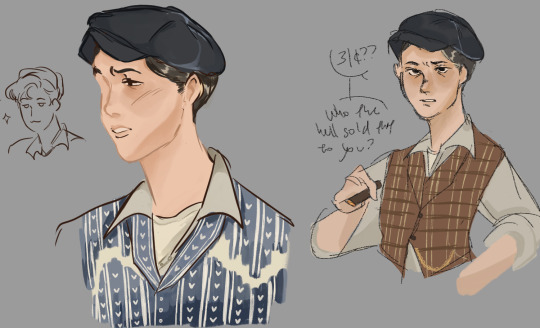
you put into the world what you want to see ! I Need To see 92sies racetrack content more often even if i have to make this slop myself.
#newsies#92sies#racetrack higgins#did i yassify him. yeah. sorry mr. casella#smug swifty in the background <333#anyways this is a wip so i remember to post my other stuff.#race would probably be really good at bartering#he's my favorite but He's THE WORST to draw.#and to write. personally i have a lot of trouble writing him#he's like a smug cat that just evades me.#hazel art
149 notes
·
View notes
Text
Brackenreid has literally so many kids my god, there are his actual three biological kids, and then there's Higgins, Crabtree, Watts and Mrs. Hart, at LEAST
#Murdoch has only his two actual kids#he's otherwise everyone's strange uncle/mentor and Brackenreid's only peer#at the station house that is#only John and Robert and Watts are also Margaret's kids hhh#(Nomi would be if she didn't already have a good mother)#you can't tell me I'm wrong because I'm right#the man adopts every orphan he can find#cause like fr lets talk about how mrs hart crabtree and watts are all technically orphans in their own right#they all have family but it's either bad or absent or both#and idk what higgins has got going on but it certainly is not a present father#murdoch mysteries#inspector brackenreid#thomas brackenreid#llewellyn watts#detective watts#george crabtree#constable crabtree#henry higgins#constable higgins#mrs. violet hart
99 notes
·
View notes
Text
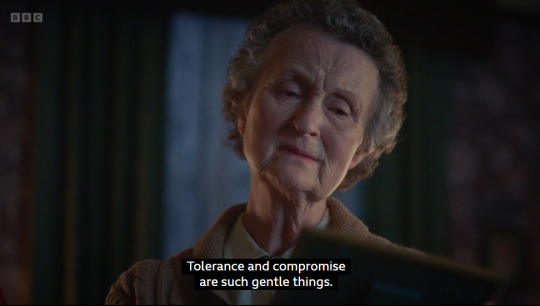
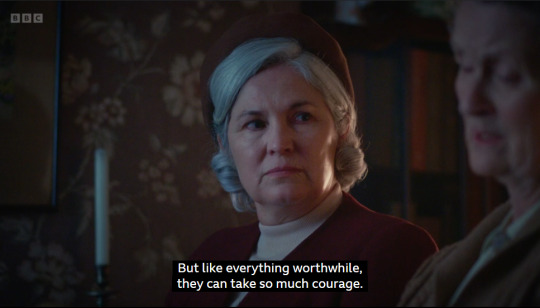
"Tolerance and compromise are such gentle things. But like everything worthwhile, they can take so much courage."
Miss Higgins's gentle approach wins over Mrs Noble.
Tolerance and compromise are signs of strength, not weakness.
CtM S14E01
25 notes
·
View notes
Note
Got any headcanons for how Henry was raised as a child? Imo he was defo a huge brat.
here’s an answer in doodle form, because this ask made my brain go crazy! (his mother is a SAINT.)
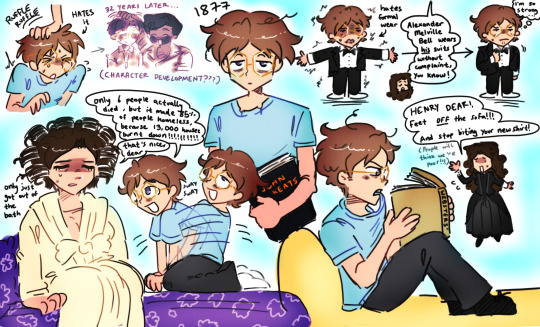
as for my deeper thoughts… oh boy, this is so hideously specific and has everything to do with my 50,000 other headcanons for him LOL. please don’t take my word as god here!
light CW for abuse (if you can even call it that. i don’t know the public consensus on it, but i do.)
i think his parents are some degree of separated. i don’t think his dad is abusive, but i think he was used to dealing with child-henry’s “fits” (read: early-1900s meltdowns) in the only way he knew how (read: physical restraint).
the sort of “last straw” episode which led to the separation in the first place (doubt he would have been any older than 6-7?) scared henry to the point of the intense, pseudo-freudian dependence on his mother that shaw talks about (his saviour!), which he obviously carries into his adult life as she continues to coddle him. he does not keep in touch with his father and, quite frankly, does not want to! he gets the occasional letter in the post and remarks very loudly that the house was in need of more kindling.
i also imagine henry very much perceives himself, sheltered rich boy he is, as abused to the highest and heaviest degree due to the nature of this restraint… which i guess isn’t technically wrong, but it’s an exaggeration, and a VERY silly one. he is absolutely the kind of jackass to try and go toe-to-toe with eliza “a-few-licks-of-the-strap” doolittle about it (hence his outrage when she accuses him of being capable of striking her), and on occasion (if he’s in a really terrible mood) pickering’s fucking war trauma, which is even sillier.
outside of that context, i think kid-henry was a little unsocialised freak. he got a name for himself amongst his mother’s servants by hiding in kitchen cupboards with heavy books every time guests came around. his friends were in youth as they are in adulthood (few and far between), and most potential friends were drawn away by his natural i’m-better-than-you attitude.
with his mother’s help, he managed to get exactly one date at the tender age of 16, during which the girl accidentally confused phonetics and linguistics, a mistake so egregious in henry’s eyes that it made him immediately walk out of the restaurant. his mother has tried multiple times since then to find a nice girl for her pathetic son, to no avail—though that’s probably a good thing, if we’re all being honest, that no girl would wind up forced to deal with him unprepared.
(oh, and i don’t think he had a brother. i think he made that up to scare mr. doolittle away! he’s got too much only-child energy.)
#professor henry higgins#pygmalion#my fair lady#i would love to know other peoples’ headcanons if they have them…#this ask was so fun to answer :^]#my art#pet artistic fancy#mrs. higgins#galatea!henry#galatea!mrshiggins#<- idfk her name yet in galatea… oops#silly notions
7 notes
·
View notes
Text
So... Masters and Men, eh? There are several different perspectives at play in this chapter:
Mrs. Thornton
"[Workers strike] For the mastership and ownership of other people’s property [...] they are a pack of ungrateful hounds [...] they want to be masters, and make the masters into slaves on their own ground. They are always trying at it; they always have it in their minds".
Mrs. Thornton speaks very harshly of the workers, and she seems to explicitly view the situation as opposing sides, with the 'lesser' one being the aggressor. Part of the pride she takes in her lifestyle is linked to being brave enough to face them and 'fight' against them. In fact, the quote about that is really interesting to me, because she claims they're "a people who are always owing their betters a grudge, and only waiting for an opportunity to pay it off," but in some ways, she could be seen that way as well. At least in the sense of family history/social status, the Hales are supposedly the Thornton's superiors, right? And Mrs. Thornton is very prickly about being seen as inferior herself. A lot of it seems to be genuine pride and dislike of their (Southern) priorities, but some is definitely defensive. And I could see some nasty high society person using similar wording about Mrs. Thornton herself having a grudge against her betters. Certainly, as someone who herself had to struggle tremendously to climb to the point she's at now, I find it easier to see her believing others will want to do the same (though she attributes more malevolence to their actions).
Mr. Hale
"I should say that the masses were already passing rapidly into the troublesome stage which intervenes between childhood and manhood, in the life of the multitude as well as that of the individual. Now, the error which many parents commit in the treatment of the individual at this time is, insisting on the same unreasoning obedience as when all he had to do in the way of duty was, to obey the simple laws of ‘Come when you’re called,’ and ‘Do as you’re bid!’ But a wise parent humours the desire for independent action, so as to become the friend and adviser when his absolute rule shall cease."
Mr. Hale doesn't attempt to dispute the idea that the workers are inferiors, and he's clearly not willing to go too far because he wants to keep the peace. But he tries to suggest that Mr. Thornton look upon them as growing and learning, and be indulged of their 'mistakes' or 'outbursts', so to speak. When talk again turns to the two sides as being opposed to one another, Mr. Hale says, "is not that because there has been none of the equality of friendship between the adviser and advised classes?" He's certainly in favor of mending relations, and he doesn't believe that opposition is inherent/necessary, but his approach is sort of benevolently condescending. This too fits well with his background and the kind of thing Margaret was used to before they move here.
Nicholas Higgins
...it were the interest of the employers to keep them from acquiring money—that it would make them too independent if they had a sum in the savings’ bank. [...] I heard, moreover, that it was considered to the advantage of the masters to have ignorant workmen... [...] But he—that is my informant—spoke as if the masters would like their hands to be merely tall, large children—living in the present moment—with a blind unreasoning kind of obedience.
Higgins (who isn't here and whose words are being relayed second-hand) is the one who first brought up the workers-to-children comparison, but he did so in a distinctly scathing way. He's very bitter about the 'masters' and is definitely displeased at being looked down on. But it's not just resentment. He recognizes the balance of power that is at least in many cases being deliberately maintained. The workers aren't allowed to be too independent because then they can't as easily be used however the masters want. His views are sort of a reverse of Mrs. Thornton's... the employers are the aggressors constantly shoving the workers back down. Wanting them to be ignorant, never to think for themselves, to be dependent and unquestioning. As someone who has very few options even when it comes to helping his daughter dying due to a factory-related illness, his bitterness is fully understandable.
John Thornton
"But because we don’t explain our reasons, they won’t believe we’re acting reasonably. We must give them line and letter for the way we choose to spend or save our money." [...] "I agree with Miss Hale so far as to consider our people in the condition of children, while I deny that we, the masters, have anything to do with the making or keeping them so. I maintain that despotism is the best kind of government for them; so that in the hours in which I come in contact with them I must necessarily be an autocrat." [...] "And I say, that the masters would be trenching on the independence of their hands, in a way that I, for one, should not feel justified in doing, if we interfered too much with the life they lead out of the mills. Because they labour ten hours a-day for us, I do not see that we have any right to impose leading-strings upon them for the rest of their time. I value my own independence so highly that I can fancy no degradation greater than that of having another man perpetually directing and advising and lecturing me, or even planning too closely in any way about my actions."
Mr. Thornton has quite an interesting mix of views here. He claims that it is necessary for him to be a despot; but he feels he has no right to interfere with their personal lives. He talks scornfully of their strikes and says if they knew why he's taken his stance, then they would act differently, but he refuses to tell them why. He agrees that they're like children, but then says he respects their independence and is treating them like he'd want to be treated. Thornton does seem to have a better understanding of the independent nature of the people here, but he uses that reasoning to justify remaining completely uninvolved in bettering the situation. He asks if he has any right to impose his own views on them just because he's their boss - and that's a fair point, but also, he's kind of doing that regardless? It's his belief that an honest and straightforward, if demanding 'master' is both more respectable and incurs loyalty/becomes an example to follow. It's his belief that the workers should blindly obey him because he's in charge, and that this is better for them. And as someone with so much power over their livelihoods, he can operate based on these views. If they feel otherwise, they don't have the power to change that. When they try with strikes, he's willing to get into a power struggle that he admits will hurt him as well as them, rather than let them 'win' even just enough to make him admit his reasons why. Even though he claims their interests align with his, he seems to feel that they don't or can't understand this, and thus conflict is inevitable. In fact, I think he was the first one to call it a "battle of the classes." Thornton's backstory is very much a "pulled myself up by my own bootstraps" success story, and because he did it by working really hard and practicing lots of self-discipline, he seems to think anyone else who fails to succeed is at fault for not working hard enough. He didn't question his bosses, he just put the work in! And so on. Of course, pretty sure he was always of a higher class, and that's going to be a factor for all of these people regardless, but still, I can easily see him thinking that it's their fault for not knowing how to save their money carefully enough. And thus dismissing their complaints.
Margaret Hale
All I meant to say is, that there is no human law to prevent the employers from utterly wasting or throwing away all their money, if they choose; but that there are passages in the Bible which would rather imply—to me at least—that they neglected their duties as stewards if they did so. [...] ...I see two classes dependent on each other in every possible way, yet each evidently regarding the interests of the other as opposed to their own: I never lived in a place before where there were two sets of people always running each other down. [...] ...you are a man, dealing with a set of men over whom you have, whether you reject the use of it or not, immense power, just because your lives and your welfare are so constantly and intimately interwoven. God has made us so that we must be mutually dependent. We may ignore our own dependence, or refuse to acknowledge that others depend upon us in more respects than the payment of weekly wages; but the thing must be, nevertheless.
Margaret relays Higgins' words, and speaks on his behalf. She seems to have a position closest to her father, in the sense that she feels it is Mr. Thornton's duty to aid the people under his rulership. She seems guided ultimately by religious ideals of the relationship between people, but also recognizes that the situation involves an inherent power imbalance and thus responsibility on the part of the one who is at the top. As much as Thornton might deny it, he does have incredible power over the people. But he is also dependent upon them. Her talk about dependence is really interesting because she's the first person to portray it as extending in both directions. They are dependent upon him to employ them; but he is equally dependent upon them to work for him. In this way, she goes a step further than Mr. Hale seemed to, and recognizes both sides as at least closer to equals. She clearly isn't suggesting that every worker should be seen as having the same rights and roles as Thornton, but neither does she view them as either entirely isolated in their independence, or entirely subservient in their dependence. It's a complicated web in which everyone plays a valuable part. Fighting against one another is by necessity acting against your own interests, in a way. Once again, I think her having these beliefs fits very well with her background as someone who did operate in a more noblesse oblige way and clearly felt she was better than certain other classes, but also experienced being the social lesser/supported one when taken in by her Aunt.
#north and south weekly#curious what precise moments gaskell intended as the 'sparks of truth' from all this thought-battling#mrs. thornton#mr. hale#nicholas higgins#john thornton#margaret hale
35 notes
·
View notes
Text
Lesbian version of My Fair Lady would actually work, you'd only have to turn Higgins into the most classist, elitist piece of shit you've ever heard of to compensate for losing his expert level misogyny
#of course mrs higgins could still be a ''women are never sensible. i'm the exception. why can't all the women be like me.'' kind of girlie#my fair lady
7 notes
·
View notes
Text
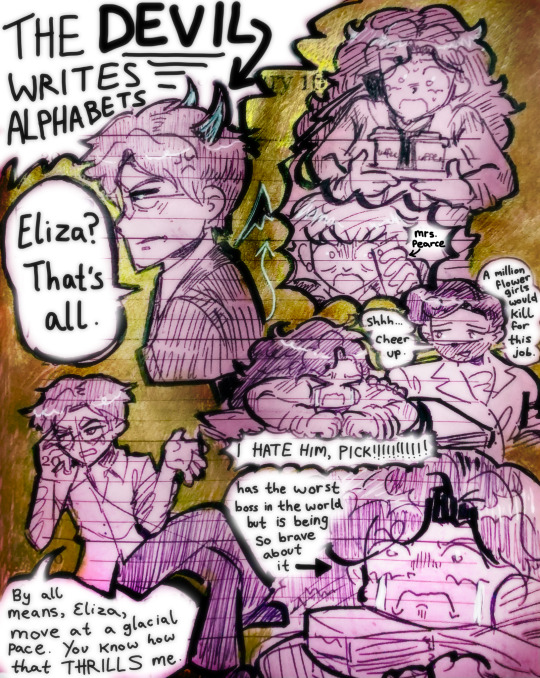
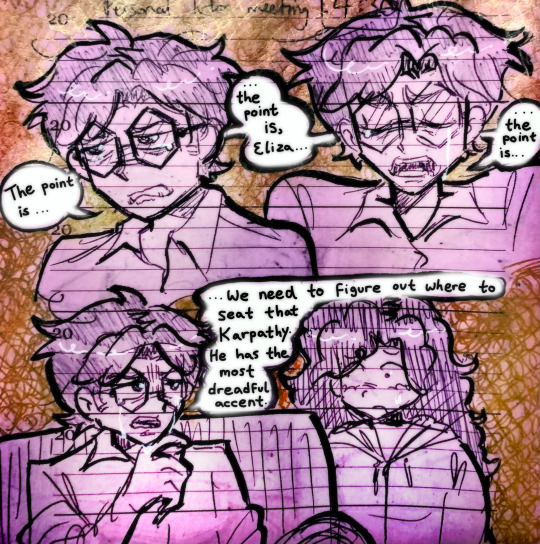
forgive the general trashiness and the planner paper background, i did this on the train ride home and it was all i had. anyway, Walk With Me Here, Guys,
#pygmalion#my fair lady#galatea#it’s galatea designs bc i love them but like in theory it’s the former two too#the devil wears prada#miranda priestly and henry higgins have the same weird emotionally-repressed bully autism to me#although henry is more misogynistic and ig miranda is more Purposefully Cruel#forgive the shaky handwriting i redid it in procreate pocket bc my train handwriting was kinda shaky#but GODDAMN IT’S HARD TO WRITE ON A PHONE!#i just realised i forgot character tags oops#eliza doolittle#henry higgins#pickering / pick is there too as is mrs pearce but eh. theyre small enough to not count#idk if fr3ddy would be nate or christian….. hmmmmmm#this whole thing is so fucking autistic of me i’m sorry#i stare at everything and go HMMMM… HOW CAN I MAKE THIS ABOUT MY BLORBOS…..
10 notes
·
View notes
Text
Not me singing union songs when I have to pause listening to North and South
11 notes
·
View notes
Text
ROBBED of an antagonistic beardbecca dynamic‼️
#ROBBED of beard being angry at her for what she was doing to ted and the team in season one#it'd be soooo tasty. ted's immediately forgiven her and so has keeley and higgins#but beard finds out and he is Not happy with her#mr loyalty who prioritizes ted and the team?? the two things she wanted to ruin?#just the contrast between her and ted and her and beard#and she's remorseful obviously! but she doesn't know beard like she knows ted so she can't easily get back into his good graces#oh no they have to have a developed dynamic where they both get to know each other more and beard lightens up and they get to a good place-
5 notes
·
View notes
Text
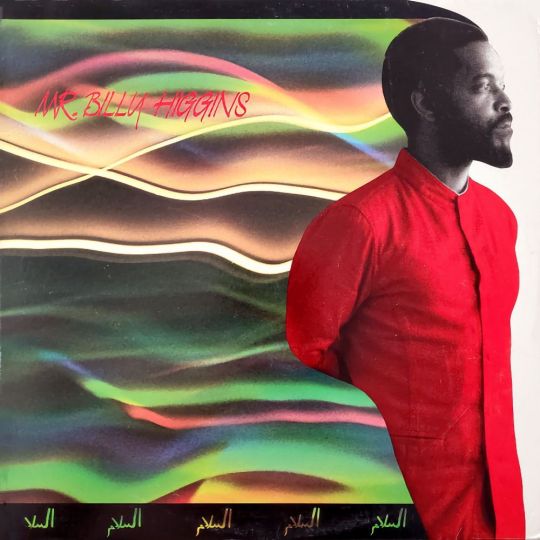
10 notes
·
View notes
Text
twenty minutes into the second half of the retired colourman so heres my prediction (possible spoilers? i have no idea if speculation counts as a spoiler?)
theyre in the pipes.
also, fucking rad that mariana (dunno how to spell her name im so sorry) noticed the pipes because it seems like shelock Didnt and i love her if mariana has no fans i am dead
also also. throuple. theyre so throuple to me. i switch between thinking "mariana x john x (queer platonic) sherlock" and "mariana x john x sherlock" like a toddler first discovering a light switch but the three of them are exclusively partnered together in some way or another to me
#sherlock & co#sherlock holmes#john watson#dr john watson#mariana ametxazurra#i learned how to spell her name :D#thank you sherlock and co cast credits :D#i love mariana so much man#and i love the way she pokes fun at them both#shes so fucking rad#i really want to know Why sherlock keeps calling her mrs higgins tho#like#he knows her name#i know he knows#its really important to me to find out lmao#the retired colourman#the retired colourman part two
15 notes
·
View notes
Text
Advisor asked me to write about two or three relationships that illustrate the intuitions I have about Gaskell's ethical-political framework in N&S, and, granted, how can he tell without having read the book, and I cannot expect him to read the whole thing, but boy is that a much more difficult task than he thinks.
#like think for example Higgins and Thornton#you cannot really make sense or justice to it without discussing Higgins and Boulcher#Higgins and Margaret#and to a certain extent the ways in which both Thornton and Higgins react to and engage with Mr Hale#so hm that is being a challenge#north and south#elizabeth gaskell#the baroness writes
9 notes
·
View notes
Text
warning for risque talk (16+, nothing explicit)

i like higgins’ “if this continues” line here because i think it implies that this is not the first time mrs pearce has been woken in the middle of the night by a dreadful pounding coming from his study
#JUST SAYINGGGGG#maybe i should take one for the team and write the fanfiction#my fair lady#professor henry higgins#colonel hugh pickering#mrs. pearce#pickggins#16+#i’m sure you could interpret it with h3liza too but i think it’s funnier with pick because—#—henry immediately asks him to back him up AND HE DOES
2 notes
·
View notes